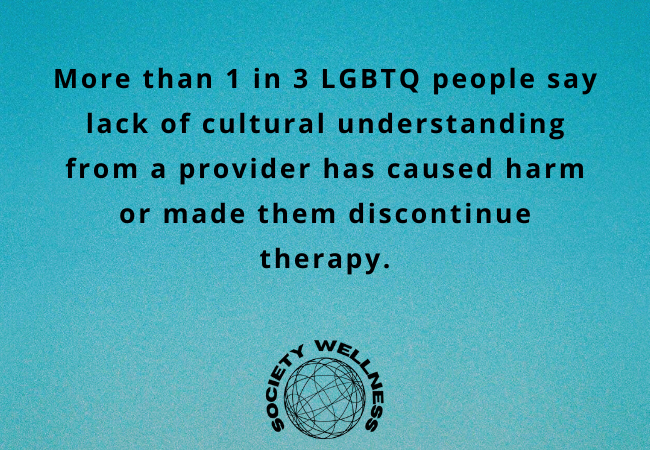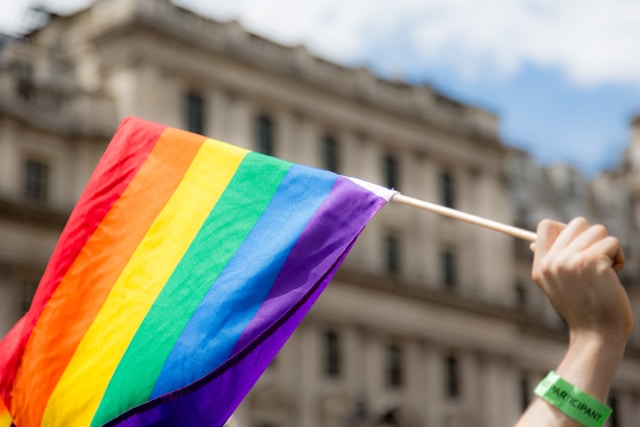Navigating the journey of finding the right couples therapist can be challenging, especially for LGBTQ individuals and couples seeking affirming and understanding care. In a diverse city like Boston, it’s essential to find a therapist who not only understands the complexities of relationships but also embraces and supports LGBTQ identities. This guide aims to assist you in identifying and connecting with LGBTQ-affirming couples therapists in Boston, ensuring your relationship receives the compassionate and specialized care it deserves.
Finding the right therapist is one of the most important steps in your relationship healing journey — especially for LGBTQ couples. Whether you’re working through conflict, communication issues, identity transitions, or just want to grow closer, choosing a professional who understands and affirms your lived experiences is essential. But in a city as big as Boston, how do you find a therapist who truly sees and supports your relationship?
At LGBTQ Behavioral Health Center Massachusetts, we specialize in providing affirming care that supports LGBTQ couples at every stage of their journey. From LGBTQ couples therapy Massachusetts to integrated mental health programs like LGBTQ Partial Hospitalization Program Massachusetts and LGBTQ Intensive Outpatient Program Massachusetts, our clinicians offer safe, expert guidance in a culturally competent space.
This blog will walk you through how to find a therapist who doesn’t just accept your identities — but celebrates and understands them.
Why LGBTQ-Affirming Therapy Matters
LGBTQ couples often face unique challenges, including societal pressures, discrimination, and navigating identity-related issues within relationships. An affirming therapist provides a safe space to explore these dynamics without judgment. They understand the nuances of LGBTQ relationships and are equipped to address concerns specific to the community, such as coming out, transitioning, or dealing with external biases.
Not all therapists are trained to understand the specific needs and dynamics of LGBTQ couples. Too often, LGBTQ individuals encounter:
-
Microaggressions or heteronormative assumptions in therapy
-
A lack of knowledge about gender identity and sexual orientation
-
Invalidation of non-traditional relationship structures (e.g., open, polyamorous, queerplatonic)
-
Therapists who conflate LGBTQ issues with mental illness or family dysfunction
Queer affirmative therapy Massachusetts offers something different: a safe, informed, and empowering space to work through your relationship challenges with confidence.
What Makes a Therapist LGBTQ-Affirming?
Before we dive into how to find one, let’s define what an LGBTQ-affirming couples therapist actually is.
An LGBTQ-affirming therapist:
- Affirms all gender identities, sexual orientations, and relationship structures
- Is trained in issues specific to the LGBTQ community, including identity development, coming out, and minority stress
- Recognizes how systemic oppression, family rejection, and trauma impact relationships
- Uses inclusive language and avoids heteronormative assumptions
- Encourages open dialogue around consent, boundaries, and evolving identities
- Provides culturally competent, trauma-informed care
How to Find an LGBTQ-Affirming Couples Therapist in Boston
1. Search LGBTQ-Specific Therapy Directories
Start by using online resources designed for LGBTQ individuals and couples, including:
-
Psychology Today – Filter by LGBTQ+ therapists and relationship therapy
-
TherapyDen.com – A progressive therapist directory with LGBTQ-affirming filters
-
National Queer and Trans Therapists of Color Network (NQTTCN) – For BIPOC LGBTQ therapists
-
GLMA.org – For LGBTQ-affirming mental health providers
Always cross-reference therapist credentials and check if they offer couples therapy specifically.
2. Look for Queer Affirmative Language and Credentials
On a therapist’s website or profile, look for language that reflects:
-
Training or certification in LGBTQ-affirming therapy
-
Experience with LGBTQ couples, not just individuals
-
Explicit statements of support and inclusivity
-
Comfort with intersectionality (race, religion, disability, culture)
You can also check for experience in LGBTQ therapy Massachusetts and programs like LGBTQ Intensive Outpatient Program Massachusetts for comprehensive care.
3. Ask the Right Questions in a Consultation
Most therapists offer free or low-cost consultations. Use that time to ask:
-
What experience do you have working with LGBTQ couples?
-
How do you ensure your practice is inclusive and affirming?
-
Are you familiar with gender transition, nonbinary identities, or polyamory?
-
How do you approach conflict, intimacy, and external stress in LGBTQ relationships?
Don’t be afraid to walk away if something doesn’t feel right. Trust and safety are essential.
4. Seek Recommendations from LGBTQ Centers and Community Groups
Boston has a strong LGBTQ network. Reach out to:
-
The Fenway Institute
-
The Boston Alliance of LGBTQ+ Youth (BAGLY)
-
MassEquality
-
LGBTQ campus resource centers (Harvard, MIT, Boston University)
They often maintain updated lists of trusted mental health professionals who offer LGBTQ couples counseling Massachusetts.
5. Consider Whether You Need Individual Support Too
Sometimes, individual struggles — like depression, anxiety, trauma, or substance use — affect the relationship. If either partner needs more support, consider centers like ours that offer:
-
LGBTQ Partial Hospitalization Program Massachusetts (PHP)
-
LGBTQ Intensive Outpatient Program Massachusetts (IOP)
These programs provide holistic care that addresses both personal healing and relationship growth under one roof.

Red Flags to Watch Out for in Non-Affirming Therapists
Unfortunately, not all therapists are truly inclusive — even if they say they are. Here are signs to look out for:
🚩 The therapist avoids or dismisses your pronouns or identity
🚩 They seem unfamiliar with LGBTQ terminology or experiences
🚩 They pathologize your relationship dynamic or structure
🚩 They appear uncomfortable discussing queer intimacy or gender exploration
🚩 They push heteronormative frameworks onto your relationship
You deserve therapy that affirms, uplifts, and empowers you — not therapy that causes more harm.
Questions to Ask Potential Therapists
- What experience do you have working with LGBTQ couples?
- How do you approach issues related to sexual orientation and gender identity in therapy?
- Can you describe your experience with diverse relationship structures, such as polyamory or open relationships?
- What is your approach to handling conflicts and communication issues in couples therapy?
Additional Support Services
For couples needing more intensive support, consider programs like:
- LGBTQ Partial Hospitalization Program (PHP): Provides structured mental health support during the day.
- LGBTQ Intensive Outpatient Program (IOP): Offers flexible therapy sessions while allowing clients to maintain daily responsibilities.
These programs can be beneficial for couples dealing with significant mental health challenges alongside relationship issues.
Why LGBTQ Couples Choose LGBTQ Behavioral Health Center Massachusetts
We understand that finding the right support in Boston can be overwhelming — and we’re here to make it easier.
At LGBTQ Behavioral Health Center Massachusetts, we offer:
- Experienced LGBTQ-Affirming Therapists
- Specialized Couples Counseling focused on queer partnerships
- Queer Affirmative Therapy Massachusetts grounded in intersectionality
- Integrated PHP and IOP Programs for comprehensive care
- Flexible Virtual & In-Person Appointments
- Safe, Confidential, Culturally Competent Space
Whether you’re facing a crisis, a transition, or just want to grow together, we’re ready to walk that path with you.
Conclusion
Finding an LGBTQ-affirming couples therapist in Boston is a crucial step toward nurturing and strengthening your relationship. By leveraging specialized directories, connecting with local LGBTQ organizations, and thoroughly evaluating potential therapists, you can find a professional who understands and supports your unique journey. Remember, seeking help is a sign of strength, and the right therapist can make a significant difference in your relationship’s health and happiness.
At LGBTQ Behavioral Health Center Massachusetts, we offer comprehensive services tailored to the LGBTQ community, including couples therapy, PHP, and IOP programs. Our team of affirming professionals is here to support you every step of the way.
Call LGBTQ Behavioral Health Center Massachusetts today at 888.964.8116. Let’s help you find the affirming, empowering couples therapy you deserve — right here in Boston. Because your love matters. Your story matters. And you deserve care that truly reflects both.
FAQ on LGBTQ-Affirming Couples Therapist in Boston
What is LGBTQ-affirming therapy and why does it matter for couples?
LGBTQ-affirming therapy validates your identity and relationship. It provides safe, culturally competent care designed to support your unique challenges as a couple.
Where can I find LGBTQ-affirming couples therapists in Boston?
Use LGBTQ-specific directories like Psychology Today, TherapyDen, Zencare, and Inclusive Therapists. You can also contact LGBTQ Behavioral Health Center Massachusetts directly.
What questions should we ask during our first therapist consultation?
Ask about their experience with LGBTQ couples, understanding of diverse identities and relationship structures, and how they address conflict and communication in therapy.
How do I know if a therapist is truly affirming?
Look for inclusive language, LGBTQ-specific training, comfort discussing identity and intimacy, and evidence that they support diverse experiences beyond tolerance.
What if one of us is unsure about therapy?
Start with a consultation. LGBTQ couples counseling Massachusetts can be tailored to meet each partner where they are, gently building trust in the process.

